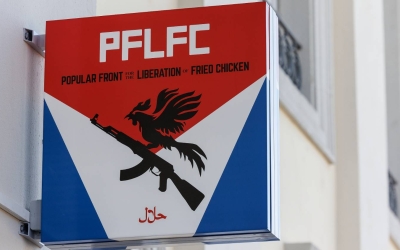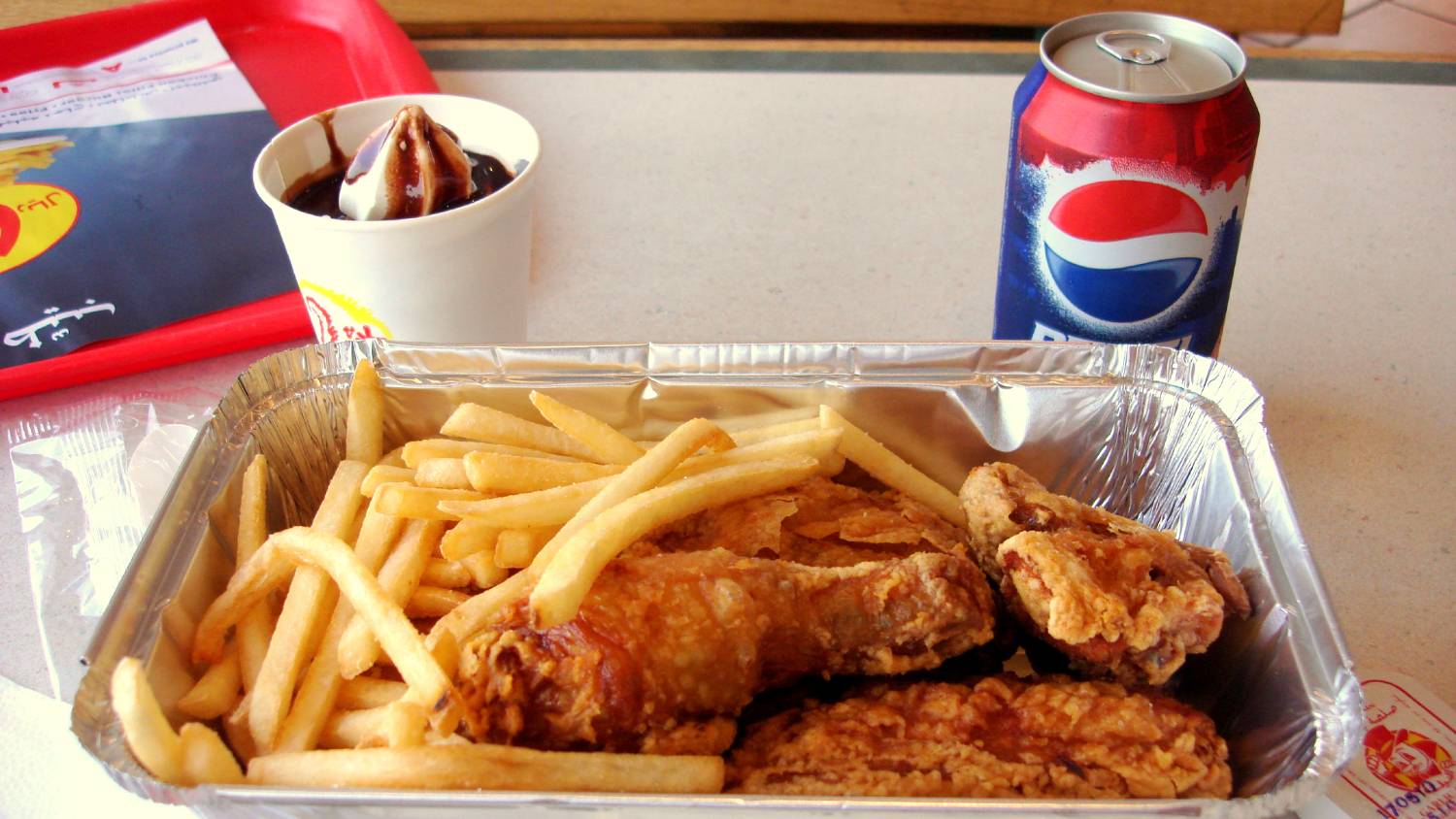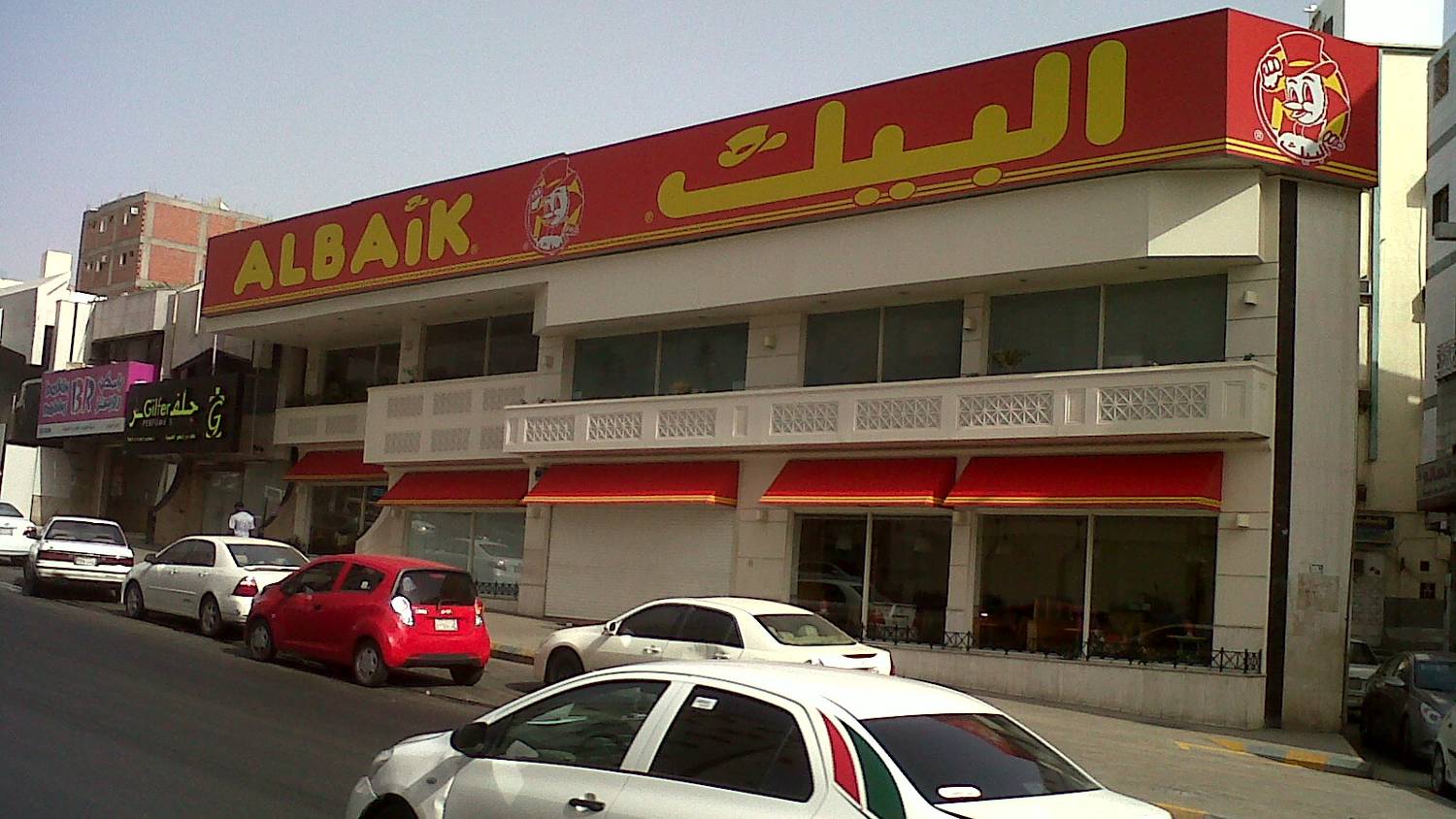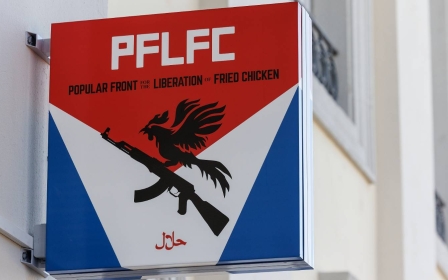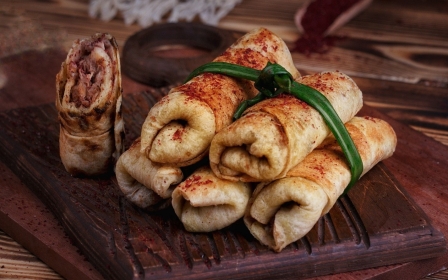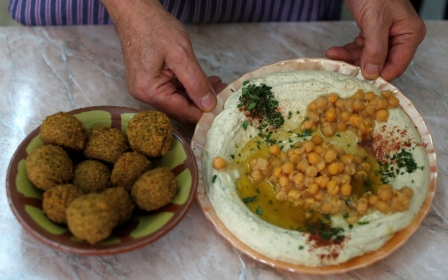Chicken coup: Why Saudis prefer a local fried chicken brand over western rivals
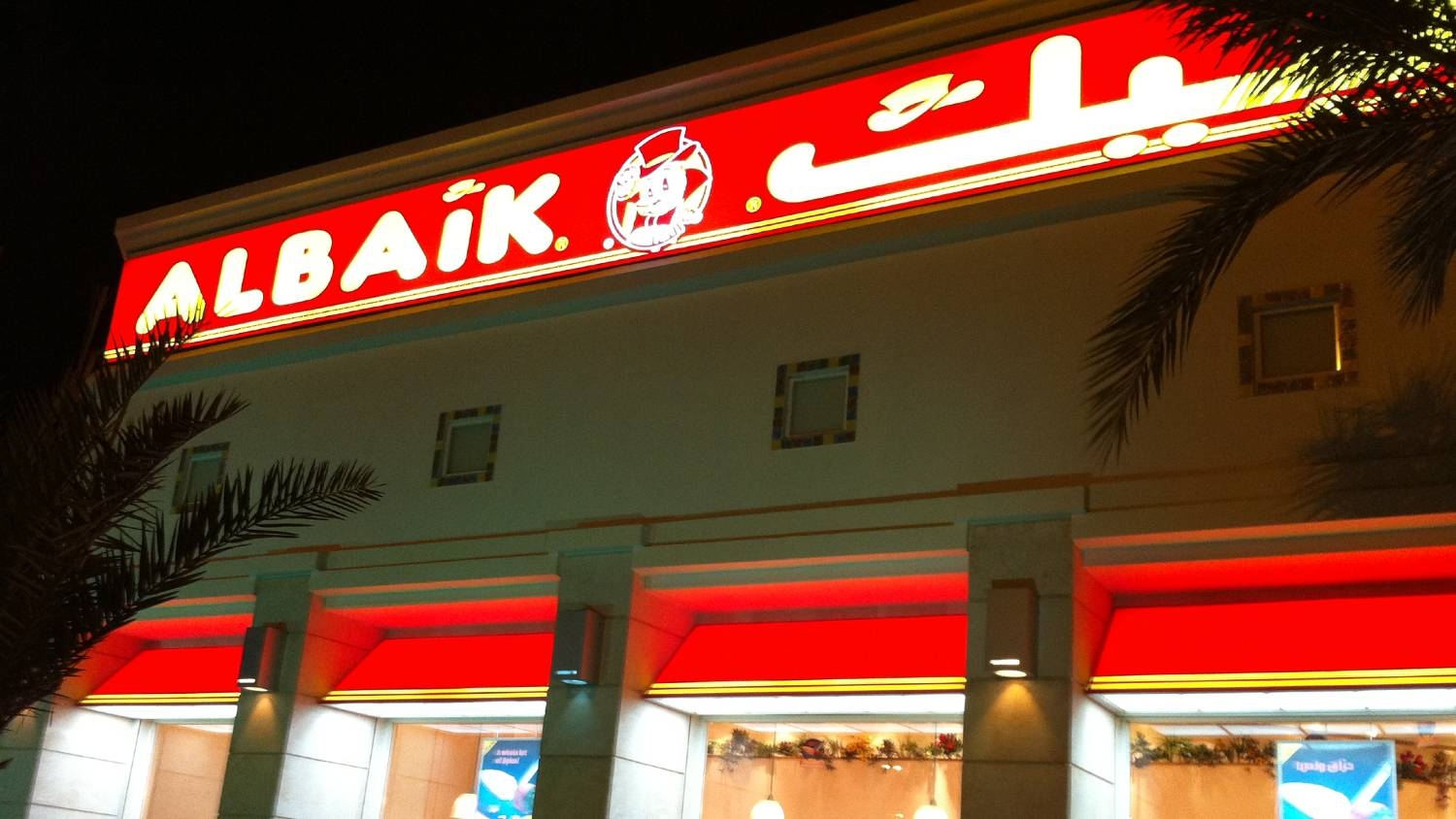
At Jeddah's international airport in Saudi Arabia, pilgrims heading back to their countries stop at a branch of a fast-food outlet before boarding their flights.
One family heading to Peshawar in Pakistan wheel their trolleys towards their departure gate, while clutching a white plastic bag with a yellow and red logo shining through.
“It’s for my family,” says the traveller who was in town for the Umrah pilgrimage. “We have the dates, we have some zamzam, but Albaik is what they’ve asked for,” he adds, referring to the takeaway bag filled with fried chicken.
Saudi Arabia has no shortage of fried chicken outlets, and shopping mall food courts in the country are full of families digging into buckets of the dish that originates in the American South.
Such is the ubiquity of the restaurants that pilgrims at Mecca's Grand Mosque can pick up fried chicken at two KFC franchises located across the road from the complex.
New MEE newsletter: Jerusalem Dispatch
Sign up to get the latest insights and analysis on Israel-Palestine, alongside Turkey Unpacked and other MEE newsletters
But not far from those stores is a restaurant that many in the West may not have heard of, but nonetheless goes toe-to-toe with the American giants when it comes to selling fried chicken in Saudi Arabia at least.
That outlet is Albaik, a name that will have visitors from far and wide lining up outside to taste its battered chicken served in its distinctive bright red-and-yellow paper box.
Albaik turns 50 next year, and in that time it's become one of Saudi Arabia's largest home-grown fast food restaurants - and third-most popular brand.
Albaik was once only available in Saudi Arabia's western Hejaz region but now has 120 branches throughout the kingdom. Recently, the franchise has opened new outlets outside of Saudi Arabia for the first time in neighbouring GCC countries.
Demand is so high that, in 2015, a restaurant in the country's central Al Qassim province was reportedly shut down as a precaution due to fears of a stampede breaking out.
Palestinian roots
This story of a local fast-food minnow taking on the American giants has its roots in Palestinian entrepreneurship.
The growth of fast-food consumption and the rise in the amount of meat eaten is a global phenomenon, but in the Gulf, there are some unique factors involved.
Saudi Arabia and its neighbours have experienced a monumental economic and cultural shift in the last half century brought about by the discovery of oil.
The arrival of oil wealth combined with increased economic and cultural interaction with the US had a marked influence on the way people lived, including what food they ate.
By 1970, Saudi Arabia had become the biggest exporter of crude oil in the world and around this time, in the west of the country, a Palestinian man in his mid-40s, Shakour Abu Ghazalah, started a small business selling broast chicken, a concept that had been imported from the US.
This process of cooking, borrowed from the American South, involved tenderising pieces of chicken in a pressure cooker and then deep frying them in a signature spice mix to lock in the flavours.
It was 1974, a year before KFC would open its doors in Saudi Arabia, and Abu Ghazalah worked hard to provide good food at reasonable prices to the locals in Jeddah’s Sharafiyah District. He named his diner "Broast Restaurant", and by 1976, he had two branches.
Soon after though, he died of cancer, forcing his two sons Ihsan and Rami, who were trained engineers, to learn the restaurant business.
The brothers rebranded the eatery to Albaik in 1986, and by 1990 they had opened their first of six branches in Makkah.
Those openings coincided with a growth of fast-food options in the kingdom, with Burger King opening in 1992 and McDonald's entering the market the following year.
Saudi success
As far as its food is concerned, Albaik's menu would not be out of place in a fried chicken restaurant anywhere in the world.
All the usuals are there, from its standard fried chicken pieces to burgers and wraps, alongside appetisers like chicken nuggets and strips.
A typical four-piece chicken meal served with fries, a bread roll and two servings of garlic sauce costs 21 Saudi rials ($5.60).
“It’s the sauce that makes it special,” says Shireen Fath, a British-Egyptian expat who worked in the kingdom as a teacher in the early 2000s and has fond memories of eating Albaik's fried chicken.
“The garlic sauce is on another level - I’m not sure how they make it, but it changes a standard chicken and chips meal into something extraordinary," she adds.
Saudi student Rehab al-Zaid remembers her father making road trips to the western city of Jeddah for business and returning to her hometown of Riyadh with bags full of the Albaik chicken. At the time the fast food outlet had not opened up a branch in the Saudi capital.
“He would come back with bags full of the chicken for me and my sister," she remembers, adding: "She would enjoy it even if it had gone cold, but I’d reheat mine first.”
The cost of fast food chicken
Although fried chicken is one of the most popular forms of fast food, the industry has its fair share of demons.
With the industry's rapid global expansion, chicken suppliers have been pushed to meet growing demand, producing larger birds in a shorter period of time.
While Saudi fast food outlets are by no means alone in this practice, the factory farming of these animals for consumption in big chains has long been a subject of criticism.
A vast majority of the 50 billion chickens sold each year for mass consumption are vaccinated and fed a mix of grains in a controlled environment to fatten them up faster.
In the most extreme cases, chickens may be reared in confined spaces, with little or no access to sunlight.
Animal rights activists have been campaigning for a more accountable and ethical treatment of birds and animals.
The World Animal Protection organisation believes the fast food industry "disregards" the treatment of chicken through their global supply chains and in 2018 launched the Pecking Order, an annual report to hold fast food giants in Europe accountable.
Saudi Arabia claims to source its chickens from Brazil, but even that relationship has been blighted recently, with the Gulf country banning the import of chickens from 11 poultry farms in Brazil in 2018, citing alleged irregularities in feed production. Many restaurants are now taking steps towards sourcing homegrown poultry.
The 'Alfaik' phenomenon
Demand for Albaik's chicken is not limited to those living in Saudi Arabia, with word about the brand spreading far beyond its borders.
Home to millions of expatriate workers, who retain the taste for the food offered in the kingdom, the country also attracts millions of pilgrims to Mecca and Medina who try out brands unavailable in their home countries.
While Albaik has begun to make forays into the international market, with the opening of branches in neighbouring Gulf states, the company remains primarily focused on its native Saudi market.
A consequence of that is unofficial Albaik-style restaurants opening up across the world.
In the most flagrant cases the brand's name and now iconic logo - a white bird wearing red and yellow top hat - have been copied by imitators trying to cash in on the original's popularity.
Syed Bilal Ahmad, an Indian entrepreneur from Lucknow in Uttar Pradesh, opened his version, also called Al-Baik, in 2009, and claims to have since established 150 eateries across the country.
With the same name as its Saudi inspiration, his restaurant’s tagline: "The taste of the Middle East", alludes to a connection with the original.
But Ahmad has also issued a disclaimer, which reads: "We would also like to make clear the fact that AL-BAIK.COM is not part of or affiliated with ELBAIK Food Systems Company S.A. All of the dishes served at AL-BAIK.COM restaurants are distinct and distinct from the dishes provided by ELBAIK Food Systems Company S.A."
The impersonation has also reached the Far East, with Albaik Malaysia, and in Indonesia, there's even a business that flies in regular orders of genuine Albaik direct from Saudi Arabia.
In 2022, a replica also popped up in Doha's Al Rayyan neighbourhood for a time, again with a near identical logo, until the Saudi chain tweeted that it would take legal action.
Four original Albaik food trucks debuted in Qatar during the World Cup in 2022, perhaps a teaser for a more permanent presence in the country.
While the chances of the brand replicating its success in Saudi Arabia elsewhere is slim, it might not be long before more branches start appearing outside of the country.
But in one corner of the world at least, a local brand's popularity continues to rival the fast-food western giants.
Middle East Eye delivers independent and unrivalled coverage and analysis of the Middle East, North Africa and beyond. To learn more about republishing this content and the associated fees, please fill out this form. More about MEE can be found here.


